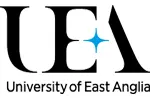We're moving! This site will be relocating to goingto.university in 2026. Please update your bookmarks to the new address.


the United Kingdom
University of East Anglia (UEA)| The award | How you will study | Study duration | Course start | Domestic course fees | International course fees |
|---|---|---|---|---|---|
| MSc | Full-time | - | - | - | - |
Study
Core modules explore ecological survey methods, current global issues in conservation, research skills for ecologists and statistics. To shape the course to your interest, choose from a diverse range of optional modules, such as Geographical Information Systems (GIS), practical conservation, work placement, restoration ecology, conservation genetics, biodiversity conservation and human society and ecological modelling. The broad areas of topics within this course are given solid grounding through planning, fundraising and executing a research project.
Structure
The MSc Applied Ecology and Conservation has a flexible course structure suitable for students who wish to build the skills necessary for a range of careers in conservation and applied ecology. The one year programme starts with a field course. You will take a combination of taught modules during the first half of the year, spending the second half on an individual research project, often overseas.
Teaching
Most of the teaching is conducted by Conservation Biologists and Ecologists in the Schools of Biological and Environmental Sciences, including collaboration with leading conservation organisations.
Employability
This course provides you with interdisciplinary training forming a platform for doctoral research or direct access to employment demanding conservation expertise. With a range of transferable skills, you will have the opportunity to establish valuable contacts with potential employers through short and long term work experience and research interaction with local and international conservation organisations.
Open to students with a good first degree (min 2.1 or equivalent) in a Biology-related subject, plus evidence of additional conservation experience. First degrees in Geography or Environmental Management with a strong ecological component are also accepted. Non-scientists seeking to apply can take the one year Diploma in Ecology and enter the MSc Applied Ecology & Conservation the following year.
Below are some suggested courses at other providers that you may also be interested in:
Master in AI Powered Design for Digital Experience Master Degree
IAAD. - Institute of Applied Art and Design
Find out moreIf you do not meet the entry requirements for this course then consider one of these postgraduate preparation courses from another institution:
Graduate Diploma of Engineering (Safety, Risk and Reliability)
Engineering Institute of Technology
Find out moreMaster of Engineering in Logistics and Supply Chain Management (ZLOG)
Zaragoza Logistics Center (ZLC)
Find out moreThere are 413 other courses listed from University of East Anglia (UEA). A selection of these are displayed below:
Adult Literacy, Lifelong Learning and Development: International Perspectives MA
University of East Anglia (UEA)
Find out moreJoin the StudyLink email list and never miss a chance to turn your study abroad dreams into reality!

Find out more about studying in the United Kingdom